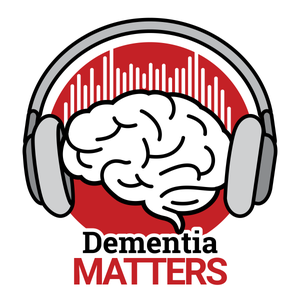
Dementia Matters
Wisconsin Alzheimer‘s Disease Research Center
Dementia Matters is brought to you by the Wisconsin Alzheimer’s Disease Research Center, located in Madison, Wisconsin.
- 21 minutes 28 seconds‘Tis the Season: Navigating the Holidays as a Dementia Caregiver
The holidays can be a stressful time for everyone, especially those with dementia and their care partners. In preparation for this season, Dr. Alexis Eastman joins Dementia Matters for our last episode of 2024. Drs. Chin and Eastman discuss strategies for managing the potential stress of holiday traveling and gatherings, important safety considerations and more.
Guest: Alexis Eastman, MD, geriatrician, Senior Medical Director of Ambulatory Medical Specialties, UW Health, associate clinical professor, Division of Geriatrics and Gerontology, University of Wisconsin School of Medicine and Public Health
Show NotesListen to our past episode with Dr. Eastman, “Holiday Tips for Dementia Caregivers,” on our website.
Find more resources and tips for the holidays in “Resources for navigating the holidays with Alzheimer’s” on our website.
Want to support Dementia Matters? Make an end-of-year gift to the Dementia Matters fund through the UW Initiative to End Alzheimer’s.
Connect with usFind transcripts and more at our website.
Email Dementia Matters: [email protected]
Follow us on Facebook and Twitter.
Subscribe to the Wisconsin Alzheimer’s Disease Research Center’s e-newsletter.
Enjoy Dementia Matters? Consider making a gift to the Dementia Matters fund through the UW Initiative to End Alzheimer’s. All donations go toward outreach and production.
24 December 2024, 12:00 pm - 34 minutes 51 secondsCould AI Identify Alzheimer’s Risk Factors from Electronic Health Records?
With the recent surge in artificial intelligence and machine learning technology, one of the most exciting fields it could revolutionize is health care and, more specifically, the field of cognitive care and research. Dr. Marina Sirota and Alice Tang join the podcast to share their research on how AI could be used to predict one’s risk of developing Alzheimer’s disease based on their electronic health records. They also discuss what needs to be done to improve these algorithms and other ways this technology could be used in Alzheimer's disease research.
Guests: Marina Sirota, PhD, associate professor, University of California San Francisco (UCSF), principal investigator, Sirota Lab, and Alice Tang, MD/PhD student, University of California San Francisco, postdoctoral fellow, Sirota Lab
Show NotesRead Alice Tang and Dr. Sirota’s study, “Leveraging electronic health records and knowledge networks for Alzheimer’s disease prediction and sex-specific biological insights,” online through the journal Nature..
Learn more about Sirota Lab on their website.
Learn more about Dr. Sirota on her UCSF profile.
Connect with usFind transcripts and more at our website.
Email Dementia Matters: [email protected]
Follow us on Facebook and Twitter.
Subscribe to the Wisconsin Alzheimer’s Disease Research Center’s e-newsletter.
Enjoy Dementia Matters? Consider making a gift to the Dementia Matters fund through the UW Initiative to End Alzheimer’s. All donations go toward outreach and production.
10 December 2024, 3:00 pm - 38 minutes 41 secondsThe Future of Fluid Biomarkers for Alzheimer’s Disease and Related Dementias
The field of biomarkers is constantly evolving, leading to developments in diagnosing and treating different kinds of dementia, but what exactly are biomarkers and how has our understanding of these measures changed over time? Dr. Henrik Zetterberg joins Dementia Matters to talk about the latest updates in research on fluid biomarkers. Dr. Zetterberg goes in depth on the role and properties of different biomarkers and how new measures and tools, like blood tests, are impacting diagnostic tests for Alzheimer’s and other neurodegenerative diseases.
Guest: Henrik Zetterberg, MD, PhD, professor of neurochemistry, University of Gothenburg, University College London, visiting professor, University of Wisconsin–Madison, Biomarker Core co-leader, Wisconsin Alzheimer’s Disease Research Center
Show NotesLearn more about Dr. Zetterberg on his University College London and University of Gothenburg profiles.
Learn more about blood tests in our episode with Dr. Thomas Karikari, “Update on Blood Tests for Alzheimer’s Disease,” on our website.
Learn more about the different biomarker procedures, such as lumbar punctures, through the Biomarker Videos on our website.
Connect with usFind transcripts and more at our website.
Email Dementia Matters: [email protected]
Follow us on Facebook and Twitter.
Subscribe to the Wisconsin Alzheimer’s Disease Research Center’s e-newsletter.
Enjoy Dementia Matters? Consider making a gift to the Dementia Matters fund through the UW Initiative to End Alzheimer’s. All donations go toward outreach and production.
26 November 2024, 12:00 pm - 29 minutes 48 secondsSupport for the Supporters: Resources for Alzheimer’s Caregivers
If you're one of the 11 million Americans providing unpaid care to a loved one with Alzheimer’s disease, you know that caregiving is both incredibly rewarding and challenging. What makes caring for someone with dementia so emotionally and physically demanding, and what resources and strategies are available to help? In this episode, Bonnie Nuttkinson joins us to discuss the unique needs of dementia caregivers, tips for navigating each stage of the disease and ways to find support along the caregiving journey.
Guest: Bonnie Nuttkinson, MS, research program coordinator, Wisconsin Alzheimer’s Disease Research Center
Show NotesRead the Alzheimer’s Association’s 2024 Facts and Figures report that Dr. Chin mentioned at 7:29
Get 10 tips and more resources for caregivers from the Caregiver Action Network that Dr. Chin mentioned at the 12-minute mark.
Visit “Resources for People with Dementia and Care Partners” on the Wisconsin ADRC website.
Find caregiving resources on the National Institute on Aging’s (NIA) Alzheimer’s Caregiving website.
Download or order The Caregiver’s Handbook from the National Institute on Aging (NIA) for free.
Alzheimers.gov has information and resources for caregivers managed by the NIA at the National Institutes of Health (NIH).
Find local elder care resources with the Elder Care Locator that Bonnie mentioned at 23:30.
Learn more about Bonnie from her profile on the BerbeeWalsh Department of Emergency Medicine website.
Read “UW–Madison Alzheimer’s program staff featured in Badger Talks series during National Family Caregivers Month” on the Wisconsin ADRC website.
Connect with usFind transcripts and more at our website.
Email Dementia Matters: [email protected]
Follow us on Facebook and Twitter.
Subscribe to the Wisconsin Alzheimer’s Disease Research Center’s e-newsletter.
Enjoy Dementia Matters? Consider making a gift to the Dementia Matters fund through the UW Initiative to End Alzheimer’s. All donations go toward outreach and production.
12 November 2024, 2:00 pm - 31 minutes 45 secondsSmartphone Screenings: Assessing Memory and Cognition using a Mobile App
What if you could test your cognition from the comfort of your own home using a smartphone? Drs. David Berron and Lindsay Clark have spent years researching cognitive neuroscience, culminating in a 2024 published study investigating the effectiveness of a smartphone app as a tool for detecting cognitive impairment outside of a clinic or research setting. Drs. Berron and Clark join Dementia Matters to discuss how the app and tests were developed, the benefits and drawbacks of this approach and the implications of remote testing in the healthcare field.
Guests: David Berron, PhD, Clinical Cognitive Neuroscience research group leader, German Center for Neurodegenerative Diseases (DZNE), and Lindsay Clark, PhD, licensed neuropsychologist, clinical core co-lead, Wisconsin Alzheimer’s Disease Research Center (ADRC), assistant professor, Division of Geriatrics and Gerontology, University of Wisconsin School of Medicine and Public Health
Show NotesRead Drs. Berron and Clark’s study, “A remote digital memory composite to detect cognitive impairment in memory clinic samples in unsupervised settings using mobile devices,” online through the journal npj Digital Medicine.
Learn more about Dr. Berron and his research on his website.
Learn more about Dr. Clark on her profile on the Wisconsin ADRC’s website.
Connect with usFind transcripts and more at our website.
Email Dementia Matters: [email protected]
Follow us on Facebook and Twitter.
Subscribe to the Wisconsin Alzheimer’s Disease Research Center’s e-newsletter.
Enjoy Dementia Matters? Consider making a gift to the Dementia Matters fund through the UW Initiative to End Alzheimer’s. All donations go toward outreach and production.
22 October 2024, 11:00 am - 33 minutes 35 secondsCatch Some Zzz’s: The Cognitive Benefits of Quality Sleep
If you get the recommended eight hours of sleep per night, you spend a third of your life asleep. Why dedicate so much time to sleeping, and how can one get the most out of those eight hours? In this episode, Dr. Allison Reiss joins us for an insightful conversation about how sleep helps the brain, what the brain does while we are asleep, tips for improving one’s sleep hygiene and much more.
Guest: Allison Reiss, MD, internal medicine physician, head, Inflammation Laboratory, New York University (NYU) Langone Hospital-Long Island, associate professor of medicine, NYU Grossman Long Island School of Medicine, member, Medical, Scientific & Memory Screening Advisory Board, Alzheimer’s Foundation of America
Show NotesFor more information about sleep, listen to our episode with Dr. Steven Barczi, “The Importance of Sleep for a Healthy Life,” mentioned by Dr. Chin at 1:40.
Learn more about Dr. Reiss and her publications from her profile on the NYU Grossman Long Island School of Medicine website.
Learn more about the Alzheimer’s Foundation of America’s Medical, Scientific & Memory Screening Advisory Board, which includes Drs. Chin and Reiss, by visiting their website.
Learn more about the Wisconsin Registry for Alzheimer’s Prevention (WRAP) on their website.
View 9 sleep tips from the Wisconsin Alzheimer’s Disease Research Center (ADRC)Watch a recording of “Sleeping Your Way to Better Brain Health” presented by Dr. Steven Barczi.
Connect with usFind transcripts and more at our website.
Email Dementia Matters: [email protected]
Follow us on Facebook and Twitter.
Subscribe to the Wisconsin Alzheimer’s Disease Research Center’s e-newsletter.
Enjoy Dementia Matters? Consider making a gift to the Dementia Matters fund through the UW Initiative to End Alzheimer’s. All donations go toward outreach and production.
8 October 2024, 11:00 am - 24 minutes 26 secondsTaking a Closer Look at Cognitive Decline and Preclinical Alzheimer’s Disease
Dr. Reisa Sperling returns for another episode of Dementia Matters. After covering her research focused on preclinical Alzheimer’s disease in part one, Dr. Sperling dives deeper into the different factors that can impact cognitive decline and early-stage Alzheimer’s disease and how clinical trials are shaping the field’s understanding of detecting, treating and preventing the disease.
Guest: Reisa Sperling, MD, director, Center for Alzheimer Research and Treatment (CART), co-principal investigator, Harvard Aging Brain Study, principal investigator, Alzheimer’s Clinical Trials Consortium (ACTC), co-leader, A4 Study, co-leader, AHEAD 3-45 Study, professor of neurology, Harvard Medical School
Show NotesListen to our first episode with Dr. Sperling, “Defining and Addressing Preclinical Alzheimer’s Disease,” on Spotify, Apple Podcasts and on our website.
Read more about the Harvard Aging Brains Study on their website.
Read more about the AHEAD Study on their website.
Watch “Voices from the AHEAD Alzheimer’s Disease Trial,” featuring Dr. Cynthia Carlsson and a research participant, on YouTube.
Learn more about the Anti-Amyloid Treatment in Asymptomatic Alzheimer’s disease (A4) study here.
Learn more about Dr. Sperling in her profile on the Massachusetts General Hospital website.
Connect with usFind transcripts and more at our website.
Email Dementia Matters: [email protected]
Follow us on Facebook and Twitter.
Subscribe to the Wisconsin Alzheimer’s Disease Research Center’s e-newsletter.
Enjoy Dementia Matters? Consider making a gift to the Dementia Matters fund through the UW Initiative to End Alzheimer’s. All donations go toward outreach and production.
24 September 2024, 11:00 am - 21 minutes 49 secondsDefining and Addressing Preclinical Alzheimer’s Disease
What if there was a way to detect Alzheimer’s disease before clinical signs and symptoms even appeared? Dr. Reisa Sperling joins Dementia Matters for a two-part series covering her research on detecting and treating Alzheimer’s disease at the earliest possible stage, known as preclinical Alzheimer’s. In this episode, Dr. Sperling goes in-depth on amyloid and tau proteins and the implications on early detection and treatment strategies for Alzheimer’s disease.
Guest: Reisa Sperling, MD, director, Center for Alzheimer Research and Treatment (CART), co-principal investigator, Harvard Aging Brain Study, principal investigator, Alzheimer’s Clinical Trials Consortium (ACTC), co-leader, A4 Study, co-leader, AHEAD 3-45 Study, professor of neurology, Harvard Medical School
Show NotesRead more about the Harvard Aging Brains Study on their website.
Read more about the AHEAD Study on their website.
Watch “Voices from the AHEAD Alzheimer’s Disease Trial,” featuring Dr. Cynthia Carlsson and a research participant, on YouTube.
Learn more about the Anti-Amyloid Treatment in Asymptomatic Alzheimer’s disease (A4) study here.
Learn more about Dr. Sperling in her profile on the Massachusetts General Hospital website.
Connect with usFind transcripts and more at our website.
Email Dementia Matters: [email protected]
Follow us on Facebook and Twitter.
Subscribe to the Wisconsin Alzheimer’s Disease Research Center’s e-newsletter.
Enjoy Dementia Matters? Consider making a gift to the Dementia Matters fund through the UW Initiative to End Alzheimer’s. All donations go toward outreach and production.
10 September 2024, 11:00 am - 33 minutes 32 secondsGut Feelings: The Links Between Gut Health and Alzheimer’s Disease
An expanding field of research is looking at how the gut affects different parts of people’s health, but how does it affect brain health? Drs. Barb Bendlin and Tyler Ulland join the podcast to talk about their 2023 study, which suggests a link between gut health, aging and changes related to Alzheimer’s disease. They discuss their findings on how gut inflammation could impact brain health, as well as explain what it means to have good gut health and how food, medications, where one lives and other factors can impact the gut microbiome.
Guests: Barbara Bendlin, PhD, professor, Division of Geriatrics and Gerontology, deputy director, University of Wisconsin (UW) Center for Health Disparities Research, and Tyler Ulland, PhD, associate professor of pathology and laboratory medicine, UW School of Medicine and Public Health, leader, Ulland Lab
Show NotesLearn more about the 2024 Fall Community Conversation: The Impact of Social Connections on Brain Health and register to attend in person on our website.
Read Dr. Bendlin and Dr. Ulland’s study, “Gut inflammation associated with age and Alzheimer’s disease pathology: a human cohort study,” on the National Library of Medicine website.
Learn more about Dr. Bendlin and Dr. Uland’s study in the article, “Gut inflammation linked to aging and Alzheimer’s disease,” on the UW School of Medicine and Public Health website.
Learn more about Dr. Ulland from his profile on the Ulland lab webpage.
Learn more about Dr. Bendlin from her profile on the UW Center for Health Disparities Research website.
Connect with usFind transcripts and more at our website.
Email Dementia Matters: [email protected]
Follow us on Facebook and Twitter.
Subscribe to the Wisconsin Alzheimer’s Disease Research Center’s e-newsletter.
Enjoy Dementia Matters? Consider making a gift to the Dementia Matters fund through the UW Initiative to End Alzheimer’s. All donations go toward outreach and production.
28 August 2024, 11:00 am - 45 minutes 57 secondsReviewing the Six Pillars of Brain Health
In this compendium episode, we review some of the best information and research that we’ve shared on the six pillars of brain health. With excerpts highlighting the importance of physical activity, diet, sleep, social engagement and more, our six guests show that there are numerous evidence-based lifestyle interventions that a person can incorporate into their daily lives to improve their brain health and delay the onset of or reduce their risk of developing Alzheimer’s disease.
Show NotesLearn more about the 2024 Fall Community Conversation: The Impact of Social Connections on Brain Health and register to attend in person on our website.
Learn more about exercise and physical activity at 2:57 or by listening to the episode, “Building the Brain: Finding the Cognitive Benefits of Physical Activity,” on our website.
Learn more about the MIND diet at 8:58 or by listening to the episode, “MIND Diet for Healthy Brain Aging,” on our website.
Learn more about the importance of sleep at 14:28 or by listening to the episode, “The Importance of Sleep for a Healthy Life,” on our website.
Learn more about mindfulness as a practice for managing stress at 21:22 or by listening to the episode, “Mindfulness: What Is It, What Are the Benefits, Where to Begin,” on our website.
Learn more about cognitive engagement at 28:10 or by listening to the episode, “Exercise Your Mind: Cognitively Stimulating Activities and Social Engagement,” on our website.
Learn more about social isolation and engagement at 34:44 or by listening to the episode, “The Impact of Social Isolation on Dementia Risk in Older Adults,” on Spotify, Apple Podcasts and on our website.
Find more information about the six pillars of brain health and other prevention strategies on our website.
Connect with usFind transcripts and more at our website.
Email Dementia Matters: [email protected]
Follow us on Facebook and Twitter.
Subscribe to the Wisconsin Alzheimer’s Disease Research Center’s e-newsletter.
Enjoy Dementia Matters? Consider making a gift to the Dementia Matters fund through the UW Initiative to End Alzheimer’s. All donations go toward outreach and production.
13 August 2024, 11:00 am - 37 minutes 15 secondsPredictive Personalities: How Personality Traits Influence Dementia Risk
While genetics and lifestyle can influence one’s risk of developing Alzheimer’s disease, other unexpected factors can shift the possibility. One of these factors is personality. Dr. Emorie Beck joins Dementia Matters to share her research on the link between personality and Alzheimer’s risk. Dr. Beck breaks down the Big Five traits that make up someone’s personality and their effects on a person’s cognitive health.
Guest: Emorie Beck, PhD, assistant professor, University of California, Davis
Show NotesRead Dr. Beck’s study, “Personality predictors of dementia diagnosis and neuropathological burden: An individual participant data meta-analysis,” through the Alzheimer’s Association Journals website.
Learn more about Dr. Beck on her profile on the UC–Davis website.
Learn more about social isolation by listening to our episode, “The Impact of Social Isolation on Dementia Risk in Older Adults,” on Spotify, Apple Podcasts, and on our website.
Find out your personality type by taking the FiveThirtyEight Personality Quiz
Test your cognitive ability and participate in studies similar to Dr. Beck’s on TestMyBrain.org
Connect with usFind transcripts and more at our website.
Email Dementia Matters: [email protected]
Follow us on Facebook and Twitter.
Subscribe to the Wisconsin Alzheimer’s Disease Research Center’s e-newsletter.
Enjoy Dementia Matters? Consider making a gift to the Dementia Matters fund through the UW Initiative to End Alzheimer’s. All donations go toward outreach and production.
23 July 2024, 10:00 pm - More Episodes? Get the App
Your feedback is valuable to us. Should you encounter any bugs, glitches, lack of functionality or other problems, please email us on [email protected] or join Moon.FM Telegram Group where you can talk directly to the dev team who are happy to answer any queries.
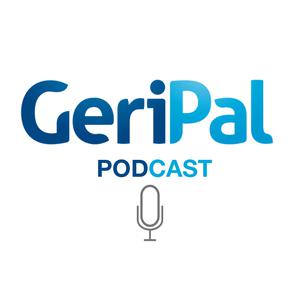 GeriPal
GeriPal
 Clear+Vivid with Alan Alda
Clear+Vivid with Alan Alda
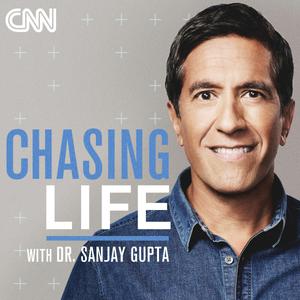 Chasing Life
Chasing Life
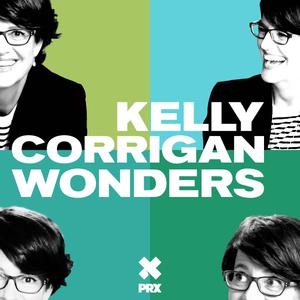 Kelly Corrigan Wonders
Kelly Corrigan Wonders
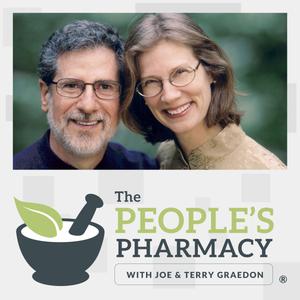 The People's Pharmacy
The People's Pharmacy
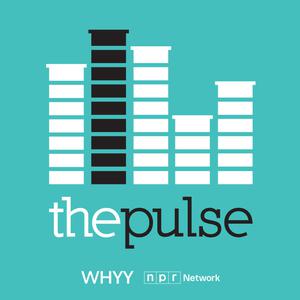 The Pulse
The Pulse